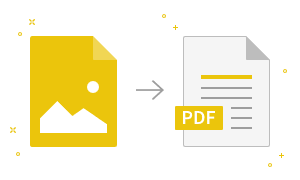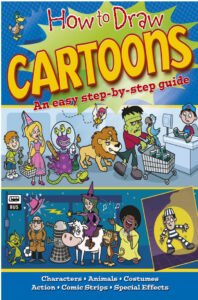TS Grewal Accountancy Class 11 Solutions Chapter 15 Financial Statements of Sole Proprietorship
TS Grewal Accountancy Class 11 Solutions Chapter 15 Financial Statements of Sole Proprietorship are part of TS Grewal Accountancy Class 11 Solutions. Here we have given TS Grewal Accountancy Class 11 Solutions Chapter 15 Financial Statements of Sole Proprietorship.
Question 1.
State whether the following expenses are capital or revenue in nature:
(i) Expenses on whitewashing and painting of a building purchased to make it ready for use.
(ii) ₹ 10,000 spent on construction platform for a new machine.
(iii) Repair expenses of ₹ 25,000 incurred for whitewashing of factory building.
(iv) Purchased a new car.
Solution:
| Expenditure | Reason |
| (i) Capital Expenditure | Paid to make an asset ready to use |
| (ii) Capital Expenditure | Paid to make an asset ready to use |
| (iii) Revenue Expenditure | Made for the maintenance of asset |
| (iv) Revenue Expenditure | Part of normal operating cost |
| (v) Capital Expenditure | Used in business for a number of years |
Question 2.
State with reasons whether the following are Capital or Revenue Expenses:
(i) Excise duty paid on purchase of new machine.
(ii) Wages paid to install a machine.
(iii) Repairs carried out on existing car.
(iv) Office block of building repainted for ₹ 50,000.
(v) Paid telephone bill ₹ 2,500.
Solution:
| Expenditure | Reason |
| (i) Capital Expenditure | Paid for the acquisition of new asset |
| (ii) Capital Expenditure | Paid to make the asset ready to use |
| (iii) Revenue Expenditure | Paid for the running and maintenance of car |
| (iv) Revenue Expenditure | Paid for the maintenance of Building |
| (v) Revenue Expenditure | Part of normal operating cost |
Question 3.
From the following information determine Gross Profit for the year ended 31st March, 2018.

Solution:
Gross Profit = Sales + Closing Stock – (Opening Stock + Goods Purchased + Freight and Packing)
= 1,90,000 + 30,000 – (25,000 +1,40,000 + 10,000)
= 2,20,000 – 1,75,000
= Rs. 45,000
Note: Packing Expenses on sales (Rs.6,000) is not a Direct Expense. Thus, it not considered while computing the amount of Gross Profit.
Question 4.
Calculate Closing Stock from the following details:

Solution:
Gross Profit on cost = 33 %.
Cost = rd.
Gross Profit on sales = th
And, Sales = Cash Sales + Credit Sales = 60,000+40,000 = Rs.1,00,000
So, Gross Profit = 1,00,000 x = Rs.25,000
Cost of Goods Sold = Sales – Gross Profit = 1,00,000 – 25,000 = Rs.75,000
Cost of Goods Sold = Opening Stock + Purchases – Closing Stock
75,000 = 20,000 + 70,000 – Closing Stock
Closing Stock = Rs.15,000
Question 5.
Prepare Trading Account from the transactions givne below:

Solution:

Question 6.
Ascertain Gross Profit the following:

Solution:

Note: Carriage on Sales and Office Rent are not a Direct Expense. Thus, it is not considered while computing the amount of Gross Profit.
Question 7.
From the following information prepare Trading Account for the year ended 31st March, 2018:

Net Realisable Value (Market Value) of stock as on 31st March, 2018 was ₹ 1,20,000.
Solution:

Note: According to the Principle of Conservatism, closing stock is valued at Cost or Market Price, whichever is less. Hence, closing stock is valued at Market Price (i.e., Rs.1,20,000)
Question 8.
From the following information, prepare Trading Account for the year ended 31st March, 2018:
Adjusted Purchases ₹ 6,60,000; Sales ₹ 7,44,000; Closing Stock ₹ 50,400; Freight and Carriage Inwards ₹ 3,600; Wages ₹ 6,000; Freight and Cartage Outwards ₹ 2,000.
Solution:

Note :
1. Freight and Carriage Outwards are not a Direct Expense. Thus, it is not recorded in the trading Account.
2. Adjusted Purchases = Opening Stock + Net Purchases – Closing Stock
Therefore, Closing Stock (Rs.50,400) is not considered while preparing Trading Account.
Question 9.
Following balances appear in the Trail Balance of a firm as on 31st March, 2018:

Prepare Trading Account of the firm.
Solution:

Note: Freight Outwards are not a Direct Expense. Thus, it is not recorded in the Trading Account.
Question 10.
From the following information, prepare Trading account for the year ended 31st March, 2018:
Adjusted Purchases ₹ 5,50,000; Sales ₹ 6,25,000; Freight and Carriage Inwards ₹ 3,000; Wages ₹ 7,000; Freight and Cartage Outwards ₹ 2,500; Closing Stock ₹ 50,000.
Solution:

Note :
1. Freight and Carriage Outwards are not a Direct Expense. Thus, it is not recorded in the Trading Account.
2. Adjusted Purchases = Opening Stock + Net Purchases – Closing Stock
Therefore, Closing Stock (Rs.50,000) is not considered while preparing Trading Account.
Question 11.
From the following figures, calculate Operating Profit:

Solution:
Calculation of Operating Profit
Operating Profit = Net Profit – Rent Received – Gain of sales of Machine + Interest on Loan + Donation
= 1,00,000 – 10,000 – 15,000 + 20,000 + 2,000
= Rs.97,000
Operating Profit = Rs.97,000
Question 12.
From the following, prepare Profit and Loss Account of Sohan Lal as it would appear in the 1st year that ended 31st March, 2018:

The Gross Profit was 45% of sales, which amounted to ₹ 6,50,000.
Solution:

Question 13.
From the following information, prepare Profit and Loss Account for the year ended 31st March, 2018:

Solution:

Question 14.
From the following particular, prepare Balance Sheet as at 31st March, 2018:

Solution:

Question 15.
From the following information, prepare Balance Sheet of a trader as at 31st March, 2018 arranging the assets and liabilities-
(i) in order of permanence and
(ii) in order of liquidity:

Solution:


Question 16.
From the Balance Sheet given below, calculate:
(i) Fixed Assets
(ii) Current Assets
(iii) Current Liabilities
(iv) Working Capital

Solution:
i. Calculation of Fixed Asset
Fixed Assets = Land + Plant + Furniture + Goodwill = 20,000 + 32,000 + 8,000 + 20,000 = Rs.80,000
ii. Calculation of Current Assets
Current Assets = Stock + Debtors + Prepaid Expenses = 48,000 + 36,000 + 400 = Rs.84,400
iii. Calculation of Current Liabilities
Current Liabilities = Creditors + Expenses Accrued + Bank Overdraft + Interest on Loan = 42,000 + 3,200 + 4,800 + 1,000 = Rs. 51,000
iv. Calculation of Working Capital
Working Capital = Current Assets – Current Liabilities = 84,400 – 51,000 = Rs.33,400
Question 17.
Prepare Trading and Profit and Loss Account and Balance Sheet of Jagat Shah as at 31st March, 2018 from the following balances:

The Closing Stock was valued at ₹ 2,00,000.
Solution:


Question 18.
From the following balances, prepare Trading and Profit and Loss Account and Balance Sheet:

Closing Stock was valued at ₹ 30,000.
Solution:


Question 19.
The following are the balances as on 31st March, 2018 extracted from the books of Dass:

The stock on 31st March, 2018 was valued at ₹ 2,40,000.
You are required to prepare Trading Account, Profit and Loss Account and Balance Sheet as at 31st March, 2018.
Solution:


Question 20.
From the following balances of Anand, prepare Trading Account, Profit and Loss Account and Balance Sheet as at 31st March, 2018:

Value of goods on hand (31st March, 2018) was ₹ 1,43,000.
Solution:


Question 21.
From the following balances, prepare Final Accounts of M./s. Raja & Sons for the year ended 31st March, 2018:
Salary ₹ 5,400; Insurance ₹ 2,500; Cash ₹ 400; Purchases ₹ 84,170; Rent Received ₹ 3,150; Drawings ₹ 2,100; Bills Payable ₹ 3,900; Debtors ₹ 38,080; Stock (1st April, 2017) ₹ 29,500; Bank Overdraft ₹ 9,700; Carriage ₹ 2,200; Creditors ₹ 4,200; Trade Expenses ₹ 4,900; Sales Return ₹ 4,700; Machinery ₹ 12,000; Wages ₹ 45,000; Sales ₹ 1,47,200; Purchases Return ₹ 3,900; Capital ₹ 58,900; Closing Stock (31st March, 2018) ₹ 36,200.
Solution:


Question 22.
From the following balances, prepare Final Accounts of M./s. Mangal & Sons for the year ended 31st March, 2018:
Opening Stock ₹ 12,500; Bills Receivable ₹ 2,000; Sales ₹ 70,000; Purchases ₹ 37,500; Creditors ₹ 20,000; Salaries ₹ 3,850; Insurance ₹ 200; Debtors ₹ 32,500; Carriage ₹ 1,450; Commission ₹ 750; Interest ₹ 900; Printing ₹ 250; Bills Payable ₹ 3,150; Returns In ₹ 1,300; Returns Out ₹ 500; Bank ₹ 5,250; Rent and Taxes ₹ 1,300; Furniture ₹ 1,000; Capital ₹ 7,100; Stock on 31st March, 2018 ₹ 15,000.
Solution:


Question 23.
From the following balances, prepare Trading and Profit and Loss Account and the Balance Sheet:

Closing Stock was of ₹ 70,000 but its net realisable value was estimated at ₹ 60,000.
Solution:

Note: According to the Principle of Conservatism, closing stock is valued as whichever is less. Hence, closing stock is valued at (i.e., Rs.60,000)
Question 24.
From the following balances taken from the books of Hari & Co., prepare Trading and Profit and Loss Account for the year ended 31st March, 2018
and Balance Sheet as at that date:

Closing Stock was valued at ₹ 1,82,100.
Solution:


Question 25.
From the following balances, as on 31st March, 2018, prepare Trading and Profit and Loss Account and Balance Sheet:

Closing Stock on 31st March, 2018 was valued at ₹ 14,500.
Solution:


Question 26.
Trial Balance of Chatter Sen on 31st March, 2018 revealed the following balances:

Stock on 31st March, 2018 was valued at ₹ 35,000. Prepare Trading and Profit and Loss Account for the year ended 31st March, 2018 and Balance Sheet as at the date.
Solution:


Question 27.
Following Trial Balance is extracted from the books of a merchant on 31st March, 2018:

Stock in Hand on 31st March, 2018 was valued at ₹ 32,500.
From the above, prepare Trading and Profit and Loss Account for the year ended 31st March, 2018 and Balance Sheet as at that date.
Solution:


Question 28.
The following balances were extracted from the books of Harish Chandra on 31st March, 2018:

Stock on 31st March, 2018 was valued at ₹ 2,35,000.
Prepare final accounts for the year ended 31st March, 2018.
Solution:


Setting-off GST:
Input CGST + Input SGST – Output IGST = 15,000 + 15,000 – 30,000 = NIL
Question 29.
From the following Trial Balance and additional information of Mr. Gaurav, a proprietor, prepare Trading and Profit and Loss Account for the year ended 31st March, 2018 and Balance Seet as at that date:

Closing Stock at cost ₹ 1,00,000 but its market value is ₹ 88,500.
Solution:


We hope the TS Grewal Accountancy Class 11 Solutions Chapter 15 Financial Statements of Sole Proprietorship help you. If you have any query regarding TS Grewal Accountancy Class 11 Solutions Chapter 15 Financial Statements of Sole Proprietorship.

